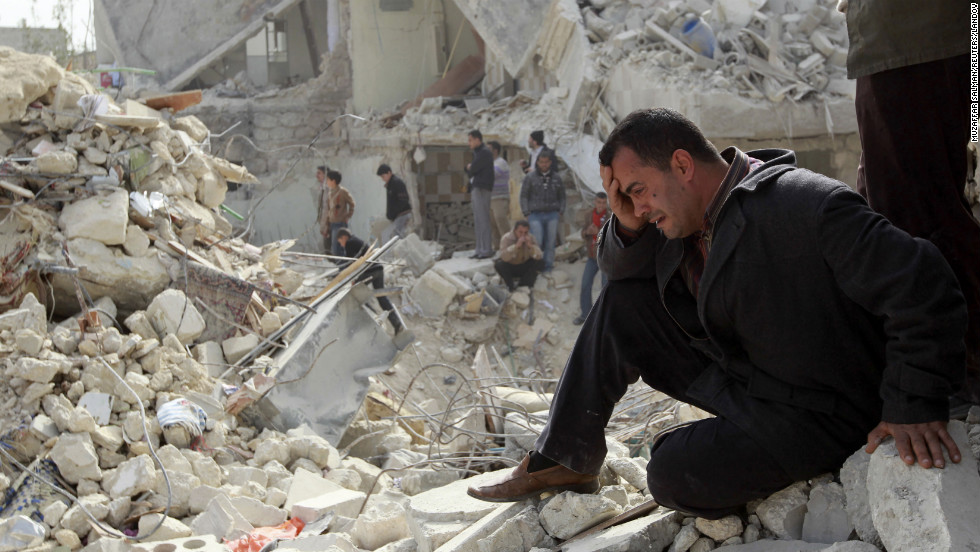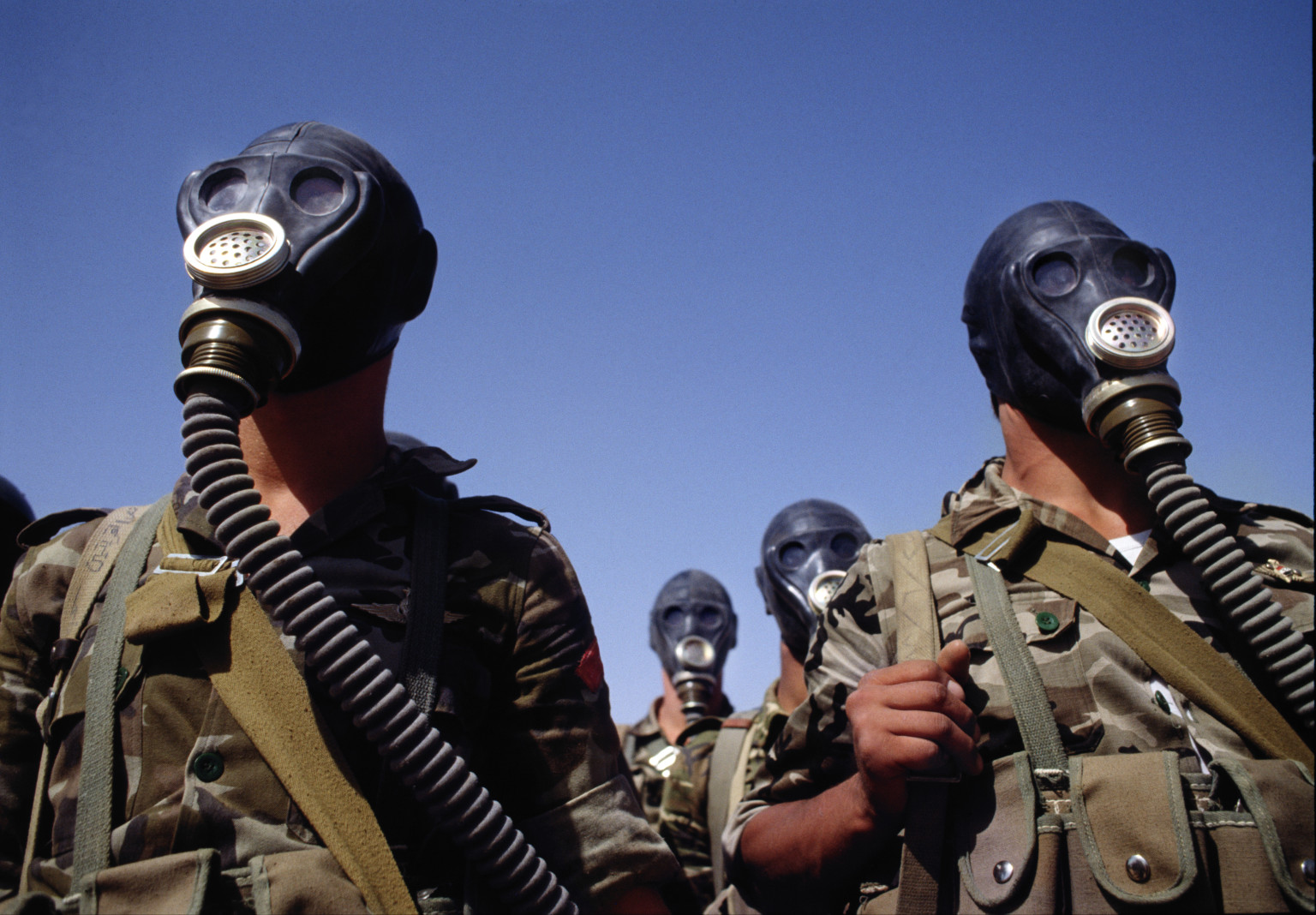[fblike]
 In less than a month, the war in Syria will be entering its fifth year. The conflict has led to the deaths of more than 250,000 people, injured more than a million others, and displaced half of the country’s population. Syrian President Bashar al-Assad appeared headed for defeat in the fall, but the intervention of Russia rescued his regime and has allowed him to reverse the momentum of the conflict. President Barack Obama has refused to provide sufficient support for Syria’s rebel factions, hesitant to get America involved in another sectarian war in the region and despairing that there are no “good” forces to support in the conflict. Experts note that the war has become a proxy battle of American and Russian influence in the Middle East and that a wider war cannot be discounted between Sunni and Shi’ite powers. The United States and Russia have recently agreed to move toward a “cessation of hostilities” later this week, but the agreement excludes attacks on terrorist groups and the tortured nature of that term is likely to help Assad solidify his gains and potentially win the war with significant ramifications for U.S. foreign policy in the Middle East.
In less than a month, the war in Syria will be entering its fifth year. The conflict has led to the deaths of more than 250,000 people, injured more than a million others, and displaced half of the country’s population. Syrian President Bashar al-Assad appeared headed for defeat in the fall, but the intervention of Russia rescued his regime and has allowed him to reverse the momentum of the conflict. President Barack Obama has refused to provide sufficient support for Syria’s rebel factions, hesitant to get America involved in another sectarian war in the region and despairing that there are no “good” forces to support in the conflict. Experts note that the war has become a proxy battle of American and Russian influence in the Middle East and that a wider war cannot be discounted between Sunni and Shi’ite powers. The United States and Russia have recently agreed to move toward a “cessation of hostilities” later this week, but the agreement excludes attacks on terrorist groups and the tortured nature of that term is likely to help Assad solidify his gains and potentially win the war with significant ramifications for U.S. foreign policy in the Middle East.
This topic brief will provide an update on the status of the conflict, discuss the recent agreements trying to wind down the war, and analyze the conflagration’s potential outcomes.
Readers are also encouraged to use the links below and in the related R&D to bolster their files about this topic.




 Here is today’s premium R&D to accompany
Here is today’s premium R&D to accompany 

/cdn0.vox-cdn.com/uploads/chorus_image/image/47259524/GettyImages-489129346.0.0.jpg) Last week, Russian aircraft dropped bombs on Syrian rebel positions, inaugurating an escalation of Russia’s participation in Syria’s four-year civil war. Russian President Vladimir Putin has calculated that it is in Russia’s geopolitical interest to preserve the regime of Syrian President Bashar al-Assad, and Russia’s bombing runs mark a potential turning point of the conflict. Russia’s intervention could improve Assad’s position and force Western nations backing the Syrian rebels to temper their opposition to Assad’s role in a political transition. In addition, Russia’s intervention is cloaked within the bounds of an ongoing war against the Islamic State, also known as the Islamic State of Iraq and Syria (ISIS), reflecting how the Syrian Civil War has transformed from an attempt to overthrow Assad to a multi-faceted war where neither side looks good. Although the West insists that Russia will fail in its intervention, extempers should be prepared to discuss this change in the Syrian Civil War at tournaments throughout the fall as it could have implications for the ongoing fight against ISIS, the ability of Syrian rebels to displace Assad, and Russia’s position in the Middle East vis-à-vis the United States.
Last week, Russian aircraft dropped bombs on Syrian rebel positions, inaugurating an escalation of Russia’s participation in Syria’s four-year civil war. Russian President Vladimir Putin has calculated that it is in Russia’s geopolitical interest to preserve the regime of Syrian President Bashar al-Assad, and Russia’s bombing runs mark a potential turning point of the conflict. Russia’s intervention could improve Assad’s position and force Western nations backing the Syrian rebels to temper their opposition to Assad’s role in a political transition. In addition, Russia’s intervention is cloaked within the bounds of an ongoing war against the Islamic State, also known as the Islamic State of Iraq and Syria (ISIS), reflecting how the Syrian Civil War has transformed from an attempt to overthrow Assad to a multi-faceted war where neither side looks good. Although the West insists that Russia will fail in its intervention, extempers should be prepared to discuss this change in the Syrian Civil War at tournaments throughout the fall as it could have implications for the ongoing fight against ISIS, the ability of Syrian rebels to displace Assad, and Russia’s position in the Middle East vis-à-vis the United States. Here is today’s premium R&D to accompany
Here is today’s premium R&D to accompany 